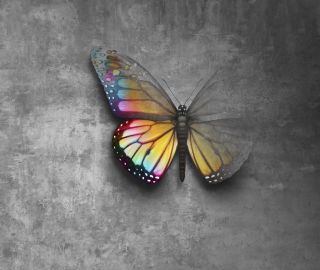Depression
Where Hopelessness Meets Hope
Hope is not mystical but rather an internal resource you can learn to develop.
Posted December 23, 2022 Reviewed by Davia Sills
Key points
- Acute hopelessness is a persistent and despondent feeling accompanied by negativistic "dark" expectations and diminished capacity.
- Hope is a "futuristic" construction that involves the active engagement of one's own self-agency to drive towards more positive outcomes.
- Having hope has been shown by Harvard-trained brain surgeon Allan Hamilton to positively affect biology.
“We lost our child to something horrible, and it has shattered everything we thought we knew; we have lost complete hope in everything.”
“I have nothing left to get up for anymore since she left me, and now my life feels hopeless.”
“The world is a terrible place where people are ruthless and inhumane, so why should I hope for anything better?
These, and many other examples from life, are the challenges to our deeper internal constructs and sense of security and safety. They are also the immense challenges that many in the world face on a daily basis that hammer away at the very core of their resiliency.

There is a song written by the artist known as “Sting,” from the English rock band The Police, called “The King of Pain,” which contains a memorable and haunting first lyric that goes, “There’s a little black spot on the sun today.” Hopelessness might feel a lot like that aforementioned lyric in the song, where every day has within it an embedded, indelible black spot, a metaphor for the psychological struggle of existing without hope.
According to researchers Khosrobeigi et al. (2022), the term hopelessness is defined as a serious condition that increases aspects of disappointment and depression and is underscored by an absence of excitement in life. Acute hopelessness, then, as I might expand the former definition based on the many patients I have counseled, could be described as a more persistent, despondent feeling that is accompanied by negativistic expectations which are governed by a complete loss of motivation. In this, we should add that "hopelessness" is also one of the key psychological signature items of suicidal ideation. Although ideation is distinct from actualized suicidal behavior, it is cited as a potential risk factor (Ballard et al., 2022).
Hopelessness, from a counseling perspective, has been shown to negatively color the future progressions of patients because it perpetuates greater negative evaluations of all future scenarios and greatly diminishes coping strategies (Hedayati et al., 2014).
Some telltale signs that we, or someone else, might be feeling hopeless include:
- Listlessness
- Deflated presentation of self
- Isolating one’s self
- Sense of helplessness or feeling powerless
- Feeling sad or rejected
- Experiencing oppressed or trapped feelings

So what, then, is hope?
Hope, on the other hand, is based on a "futuristic" construction of life that orients towards a feasible and positive tomorrow. There are a variety of definitions when it concerns hope. One concept of hope is defined by the APA Dictionary of Psychology as “the expectation that one will have positive experiences or that a potentially threatening or negative situation will not materialize or will ultimately result in a favorable state of affairs." But hope is more complex than this clinical definition. From yet another perspective, research from Maryam Hedayati et al. (2014) describes hope in the following way:
Hope involves uncertain expectations and is a process in which a person has confidence in planning for a good, realistic, and personally significant future.
For many, the concept of "hope" may seem very abstract and foreign, especially when compared to the reality of things one may be experiencing. In fact, the harsher the circumstance, the more likely the concept may feel elusive and even illogical. But there is a deeper and more scientific corner to hope that recent studies are beginning to reveal. Researchers Balen et al. (2021) emphasize that although there may be no consensus on the conceptual definition of hope among such disciplines, research imminently shows that hope itself plays an important and integral role in both the context and construct of everyday life, as well as a pivotal role in the implication of health and orientation towards future goals.
It is also important to distinguish hope from optimism, as both are sometimes confused and referred to as one and the same. Both terms share positivistic orientations about future states; however, Matthew Gallagher, an associate professor of clinical psychology at the University of Houston, distinguishes the two where hope is a way of using one’s self-agency to drive towards tangible outcomes, whereas optimism is more of an "expectation" regarding better end-states (Dastagir, 2020). In this, we begin to understand hope as a mechanism for meeting preferred outcomes, rather than expected or anticipated possibilities.

How the psychological realm affects the physical
What we think affects how we feel. In psychology classes, I have used that simple phrase to initiate larger discussions on how thoughts have the power to shift our own physiology dramatically. As an example, the Harvard-trained brain surgeon Dr. Allan Hamilton has spoken on this very point, illustrating how "hope" should be more widely acknowledged by the medical community for its possibilities for positively affecting the biological propensities of things like proteins, peptides, and hormones. He refers to hope as an enhanced internal state that offers tremendous benefits, such as accelerated wound healing, prevention of infection, enhancement of cure rates, and remission times for illnesses like cancer, alongside reducing morbidity and mortality rates from heart disease and delaying the progressive onslaught of HIV (TEDx Talks, 2014).
Can hope be taught?
In his TED Talk on hope, University of Oklahoma professor Dr. Chan Hellman, who has studied the phenomenon of "hope" for over a decade, mentions the enlarged potentials within those who cultivate hope in their daily lives. In fact, Dr. Hellman sees "hope" as a way of thinking." As we begin to understand the relevance of hope as a key to our own sense of self-agency, I felt it important to bring the work of Dr. Hellman to the forefront of this piece and contacted him to discuss the ways in which he sees hope play out daily and his thoughts on ways to install this psychological tool of hope in our lives.
This is part 1 of a series on hope. Read part 2 here.
References
APA Dictionary of Psychology. (n.d.). Dictionary.apa.org. https://dictionary.apa.org/hope
Balen, N. & Merluzzi, Thomas V.. (2021). Hope, uncertainty, and control: A theoretical integration in the context of serious illness. Patient Education and Counseling, 104(11), 2622-2627. https://doi.org/10.1016/j.pec.2021.07.029
Ballard, Elizabeth D.., Farmer, Cristan A.., Gerner, J., Bloomfield-Clagett, B., Park, Lawrence T.. & Zarate, Carlos A.. (2022). Prospective association of psychological pain and hopelessness with suicidal thoughts. Journal of Affective Disorders, 308, 243-248. https://doi.org/10.1016/j.jad.2022.04.033
Dastagir, Alia E. “Why It’s so Important to Hope.” USA TODAY, 10 Oct. 2020, www.usatoday.com/story/news/nation/2020/10/10/hope-essential-mental-hea….
Khosrobeigi, M., Hafezi, F., Naderi, F. & Ehteshamzadeh, P. (2022). Effectiveness of self-compassion training on hopelessness and resilience in parents of children with cancer. EXPLORE, 18(3), 357-361. https://doi.org/10.1016/j.explore.2021.04.003
Maryam Hedayati, M.A., and M.A. Mahmoud Khazaei. “An Investigation of the Relationship between Depression, Meaning in Life and Adult Hope.” Procedia - Social and Behavioral Sciences, vol. 114, Feb. 2014, pp. 598–601, www.sciencedirect.com/science/article/pii/S1877042813053937, 10.1016/j.sbspro.2013.12.753.
TEDx Talks. “Prescribing Hope - Changing Outcomes with Optimism: Allan Hamilton at TEDx Tucson 2013.” YouTube, 13 Jan. 2014, www.youtube.com/watch?v=QPZ1ThCcWt4. Accessed 23 Feb. 2022.




